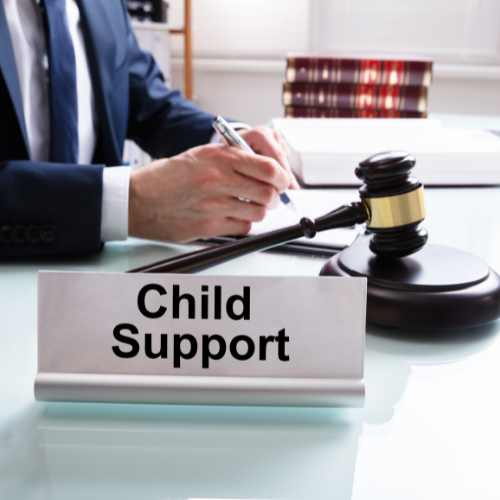CHILD SUPPORT

California Child support rights generally refer to the right of a custodial parent or guardian to receive financial support from the noncustodial parent for the care and upbringing of their child. The specific parties with child support rights can vary based on factors such as custody arrangements and legal relationships. Here are the primary individuals who may have child support rights:
- Custodial Parent: The custodial parent, also known as the residential or primary custodian, is the parent with whom the child primarily resides. In most cases, this parent has the right to receive child support from the noncustodial parent to help cover the child's expenses.
- Legal Guardian: If someone other than a biological parent has legal guardianship of a child, they may have child support rights. Legal guardians are individuals appointed by a court to care for a child's well-being and make decisions on their behalf.
- Noncustodial Parent: In cases where the child primarily resides with one parent, the noncustodial parent is typically obligated to pay child support to the custodial parent. The noncustodial parent may have visitation rights or other forms of contact with the child.
- Joint Custody Arrangements: In situations where parents share joint physical custody (i.e., the child spends significant time with both parents), child support obligations may be calculated differently. Even in joint custody arrangements, one parent may still be required to pay child support based on factors such as income disparity and the time each parent spends with the child.
- California Child Support Agencies: In some cases, child support rights are also recognized by state child support agencies, which may intervene to ensure that child support orders are established and enforced. These agencies may represent the custodial parent or legal guardian's interests.
It's important to note that child support laws can vary by jurisdiction, so the specific rights and obligations of each party may depend on the laws of the state or country where the child support order is established. If there are questions or concerns about child support rights in a particular situation, it is advisable to consult with a family law attorney or a relevant legal authority in the jurisdiction involved.
California child support is governed by state laws and is intended to ensure that both parents contribute financially to the upbringing of their children. The California Department of Child Support Services (DCSS) oversees the child support program in the state. Here are some key points regarding child support in California:
- Calculation of Child Support: California child support is typically calculated based on a formula known as the "Guideline Child Support Calculator." This formula takes into account various factors, including each parent's income, the amount of time each parent spends with the child, tax deductions, and other relevant factors.
- Income Considerations: Both parents' incomes are considered when calculating child support. This includes wages, salaries, bonuses, commissions, and other sources of income. Additionally, factors such as health insurance costs, mandatory retirement contributions, and union dues may also be taken into account.
- Custody and Visitation: The amount of time each parent spends with the child is a significant factor in determining child support. If one parent has primary physical custody, the other parent may be required to pay child support. The more time the noncustodial parent spends with the child, the lower the child support obligation may be.
- Medical Support: In addition to basic child support, parents are typically required to provide health insurance for their children. The cost of health insurance is factored into the child support calculation.
- Enforcement: The DCSS has various enforcement tools to ensure that child support orders are followed. This may include wage garnishment, intercepting tax refunds, suspension of driver's licenses, and other measures.
- Modification: Child support orders can be modified if there is a significant change in circumstances, such as a change in income or a change in the amount of time each parent spends with the child.
It's important to note that child support laws may be subject to change, and it is advisable to consult with a family law attorney or the California DCSS for the most up-to-date information and guidance tailored to your specific situation.

